Your alternatives here are basically:
- That
if/else you don't want to do
- A
switch combined with if/else
I tried to come up with a reasonable lookup map option, but it got unreasonable fairly quickly.
I'd go for #1, it's not that big:
if (res.distance == 0) {
word = 'a';
} else if (res.distance == 1 && res.difference > 3) {
word = 'b';
} else if (res.distance == 2 && res.difference > 5 && String(res.key).length > 5) {
word = 'c';
} else {
word = 'd';
}
If all the braces and vertical size bother you, without them it's almost as concise as the conditional operator version:
if (res.distance == 0) word = 'a';
else if (res.distance == 1 && res.difference > 3) word = 'b';
else if (res.distance == 2 && res.difference > 5 && String(res.key).length > 5) word = 'c';
else word = 'd';
(I'm not advocating that, I never advocate leaving off braces or putting the statement following an if on the same line, but others have different style perspectives.)
#2 is, to my mind, more clunky but that's probably more a style comment than anything else:
word = 'd';
switch (res.distance) {
case 0:
word = 'a';
break;
case 1:
if (res.difference > 3) {
word = 'b';
}
break;
case 2:
if (res.difference > 5 && String(res.key).length > 5) {
word = 'c';
}
break;
}
And finally, and I am not advocating this, you can take advantage of the fact that JavaScript's switch is unusual in the B-syntax language family: The case statements can be expressions, and are matched against the switch value in source code order:
switch (true) {
case res.distance == 0:
word = 'a';
break;
case res.distance == 1 && res.difference > 3:
word = 'b';
break;
case res.distance == 2 && res.difference > 5 && String(res.key).length > 5:
word = 'c';
break;
default:
word = 'd';
break;
}
How ugly is that? :-)
